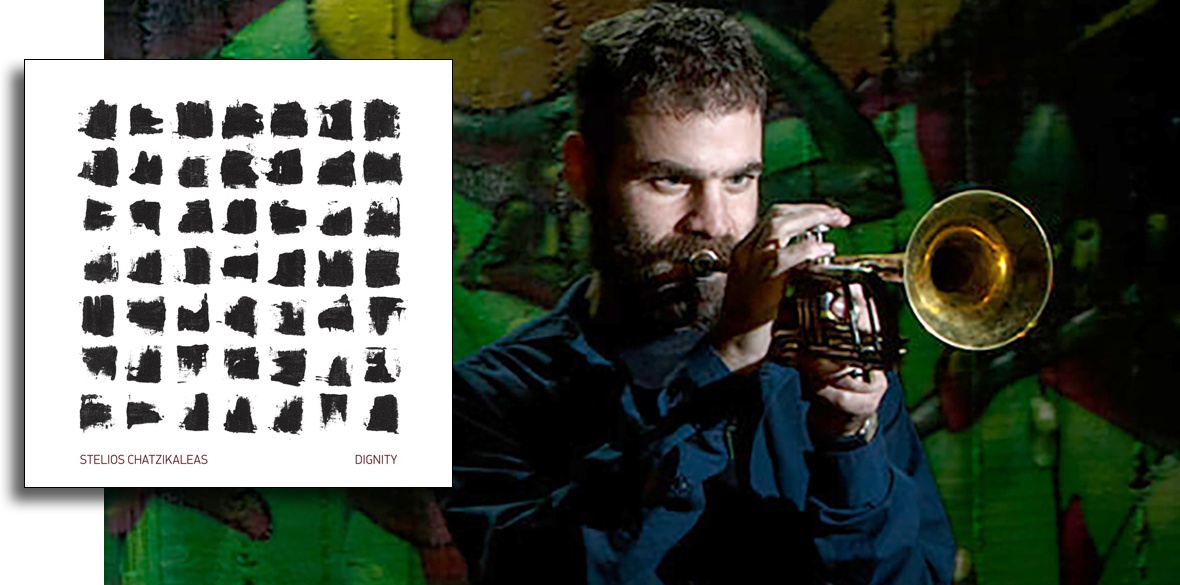This is the last article you can read this month
You can read more article this month
You can read more articles this month
Sorry your limit is up for this month
Reset on:
Please help support the Morning Star by subscribing here
JAZZ trumpeter Stelios Chatzikaleas, was born in Thessaloniki, Greece, in 1985, his mother a courthouse secretary, his father a train driver.
He started learning piano at six, but when he heard records of Miles Davis and Chet Baker as a teenager, he switched to trumpet.
“I tried to learn their solos, their sound and articulation. Then I discovered Italian trumpeter Enrico Rava, who became my main influence, and I wanted to play like him.
“I loved the European sound, aesthetics and compositional skills of trumpeters like Mathias Eick, Tomasz Stanko and Erik Truffaz.
“In Greece we have plenty of great young musicians. Some studied abroad, like me, in the Netherlands. Others developed their own home vocabulary. But there isn’t a popular jazz scene here, and few clubs, venues or festivals.
“I always wanted to visit Palestine for political reasons,” he says, “so when I saw a trumpet teaching job online at the Edward Said Conservatory, I immediately applied. I lived in Ramallah. It was difficult to find musicians with a Western harmonic — like Tareq Abboushi, who plays amazing jazz piano and the Arabic buzuq, but I managed.
“Palestinian musicians are deeply involved in the struggle against Israeli occupation and apartheid. Their music expresses this.
“They can play all over the world, yet they have to seek permission — which is mostly refused — if they want to play in Jerusalem.
“Yet in Jerusalem, the younger generation of Israeli jazz musicians — and especially those living in Europe or the US — are expressing their support for the Palestinian struggle without fear.”
Chatzikaleas tells me about his time in Palestine. “Every day I was teaching in a different city — Ramallah, Bethlehem, Jerusalem, Nablus.
“On my album Dignity each tune has the musical imprint and smell of a particular city. My favourite track is Jasmine (in Ramallah). The scent of the jasmine flower around the city, especially during summer nights, is unforgettable.”
Chatzikaleas loves Ramallah: “Life was easy-going; great food and fantastic, friendly people. It was like living in a small Greek village.
“I heard a lot of traditional Arab music and maqam. It was difficult to learn in a short time, but I got the lyrical way of playing melodies. My Palestinian students were so kind, motivated and enthusiastic.”
Chatzikaleas says his album was his statement about the Palestinian struggle against occupation, but in music.
“Instead of writing a book or newspaper article, I did what I know best.”
I ask him about his lyrical, almost elegiac hornsound. “That’s my personal struggle sounding out,” he exclaims, “I’m trying to approach what is a loud brass instrument in a different way: a more gentle, polite approach, like Rava.”
He talks about his bandmates pianist: Yiannis Papadopoulos, drummer Christos Konstantinidis, guitarist Thodoris Kotsifas, vocalist Nefeli Fasouli and bassist Ntinos Manos.
“We are very good friends, drinking, partying, talking about art, music, politics together. They are stunning instrumentalists, each has their own project and are composers too.
“They know how to approach every aspect of my music. We hardly rehearse, we let a lot of things happen on the spot because we know each other so well.”
Dignity is a very powerful album which radiates love for and solidarity with the Palestinian people, with every note a commitment to their struggle.
I ask Chatzikaleas how musicians and all of us can best support that struggle.
“It’s very simple,” he said — “support the boycott, divestment and sanctions (BDS) campaign. It’s the only way Palestinian people can continue to exist.”










